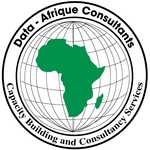|
|
Training Course On Community Health And Nutrition
USD 3,950 |
Venue: Nairobi
In most developing countries the majority of the population-the rural population especially-does not receive even the most basic health care or any nutritional advice. Malnutrition usually stems from poverty and from ignorance of what are the right foods to eat. At the same time, it increases the problems caused by the lack of health care because it weakens the body's defense against disease. This training is aimed at building the skills of the participants to efficiently offer nutrition services to communities, linking them to care and referral. This is expected to empower communities to make informed choices to ensure healthy eating and lifestyles.
COURSE OBJECTIVES
At the end of the course, the participants will be able to:
- Describe the relationship between nutrition, health and development
- Understand the classification of food into different food groups
- Understand household food security
- Describe the different nutritional requirements for each lifecycle stage
- Know to conduct growth monitoring.
- Understand the different types of malnutrition
- Carry out community nutrition counselling
- Carry out nutrition assessment
INTRODUCTION
Secure livelihoods are characterized by households that have different activities within the community that provide income, shelter, and other factors to ensure their well-being. This training event is therefore intended to enable households, communities, and countries build resilience so as to strengthen their ability to manage change by maintaining or transforming their living standards in the face of shocks or stresses without compromising their long-term prospects. The course introduces the fundamentals of nutrition-sensitive programming and provides guidelines for practitioners to use when designing programs that promote access to nutrient-rich foods and dietary diversity in a society.
COURSE OBJECTIVES
At the end of the course, the participants will be able to:
- Articulate key information on the social and economic impact of malnutrition
- Identify strategies for interrupting the cycle of malnutrition
- Explain the relationship between agricultural value chains and food systems
- Explain the enabling environment in which all pathways operate.
- Explain a four-step approach for designing effective nutrition-sensitive activities
- Gain skills on cross-cutting roles in building nutrition resilience
DURATION
2 Weeks
WHO SHOULD ATTEND
This course is aimed at health managers, community health workers, community health volunteers, nutritionists, development practitioners and other health professionals who are responsible for enhancing community health.
COURSE CONTENT
Module I: Food Diet and Nutrition
- Food, nutrition and nutrients
- Different nutrients for different foodstuffs
- Balanced diet and child feeding
- Food and nutrition security
- Nutrition, Health and Development
Module II: Nutrients and their sources
- Classification of essential nutrients
- Main nutrients
- Micronutrients
- A balanced diet
Module III: Nutrition Requirements throughout the Lifecycle
- Introduction to the lifecycle
- Lifecycle stages
- Cohort 1 Pregnancy and new-born (up to 28 days)
- Cohort 2 Early childhood (29 days -59 months)
- Cohort 3 Children and Youth (5 -19 years)
- Cohort 4 Adults (20 -59 years)
- Cohort 5 Elderly (over 60 years)
Module IV: Infant and Young Child Feeding
- Global and national recommendations for child feeding during the first 24 months
- Benefits of breastfeeding for the baby
- Benefits of breastfeeding for the mother
- Benefits of breastfeeding for the family
- Benefits of breastfeeding for the community
- Key messages for optimal complementary feeding practices
Module V: Food Safety, Storage and Preservation
- The concept of food safety and hygiene
- Food storage and preservation
- Food poisoning
Module VI: Nutrition Assessment Methods
- Anthropometry
- Biochemical/biophysical methods
- Clinical methods
- Dietary methods
Module VII: Common Community Nutrition Problems
- Types of malnutrition
- Common forms of malnutrition
- Classification of malnutrition
- Consequences of malnutrition in community
- Strategies to promote proper nutrition in community
Module VIII: Micronutrients Deficiency
- The importance of micronutrients
- Micronutrients deficiencies
- Causes of micronutrient deficiency
- Strategies to control for micronutrients deficiency
Module IX: Household Food Security
- Core concepts of food security
- Chronic and acute food insecurity
- Causes of household food insecurity
- Indicators of household food insecurity
- Food security strategies
- Nutrition emergency interventions
Module X: Nutrition Education and Counselling
- Behaviour change communication
- Stages of behaviour change
- Nutrition behaviour change communication
- Growth monitoring and promotion
GENERAL NOTES
- This course is delivered by our seasoned trainers who have vast experience as expert professionals in the respective fields of practice. The course is taught through a mix of practical activities, theory, group works and case studies.
- Training manuals and additional reference materials are provided to the participants.
- Upon successful completion of this course, participants will be issued with a certificate.
| Nairobi | Dec 09 - 20 Dec, 2024 |
Class Session: 08:00:am - 04:00:am
| USD 3,950.00 | (Kigali) |
| USD 5,500.00 | (Dubai) |
| USD 3,000.00 | (Nairobi) |
| USD 3,000.00 | (Mombasa) |
DUNCAN KARIUKI +254723360025
Tags: |
Community Health Nutrition health managers community health workers community health volunteers nutritionists |



